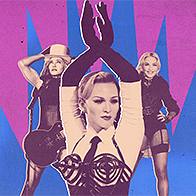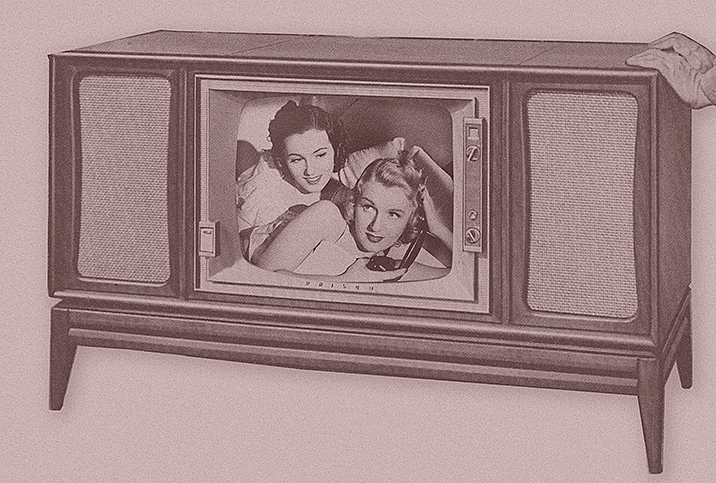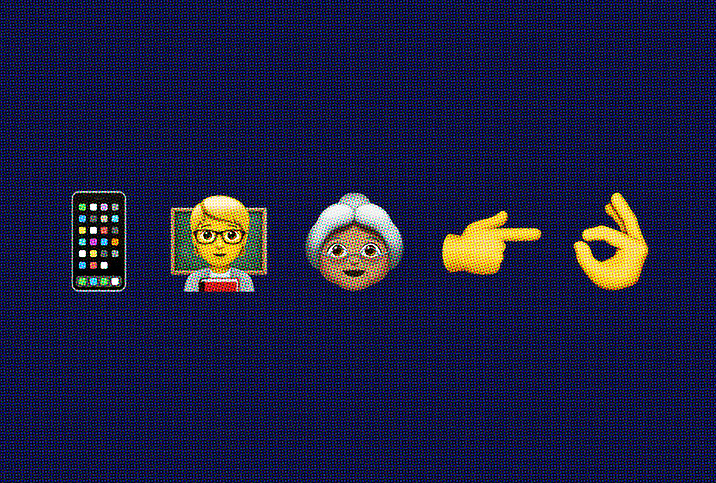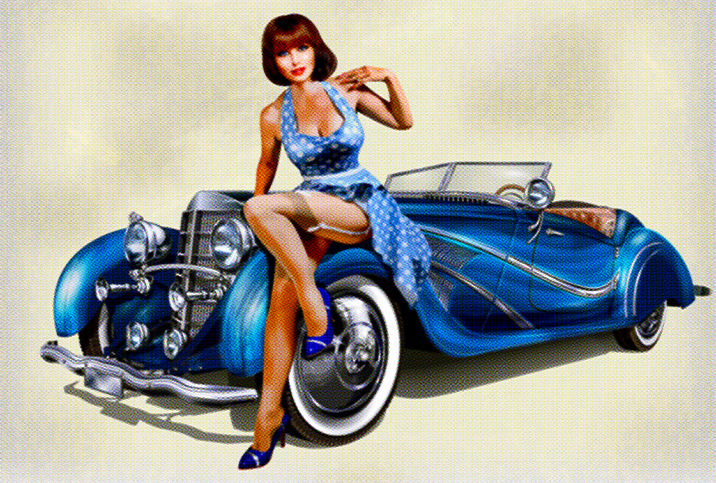We Sexually Exploited Millennial Teen Pop Princesses—The New Ones Are Over It

Earlier this year, Billie Eilish premiered her body.
Or, at least, that's how it felt amid the intense media coverage of her newly revealing outfits. After making her way to the top of the charts with baggy tracksuits and acid-green hair, the 19-year-old pop star of "Bad Guy" fame announced her second album, the recently released "Happier Than Ever," with a cover that was decidedly more bombshell than her old goth- and hip-hop-influenced pose: bleached blonde locks, a white sweater falling off her shoulders.
Then, when Eilish went full pinup on the cover of British Vogue—her curvy frame cinched in a pink Gucci corset and skirt over Agent Provocateur lingerie, accessorized by fetishistic latex gloves and leggings—the internet lost its collective mind. Onlookers showered Eilish with appreciation, backlash and the inevitable backlash to the backlash. Where some saw a young woman hitting adulthood and rightfully showing off her body, others called hypocrisy or, worse, capitulation to male-driven industry expectations.
It was hard not to feel a heavy sense of déjà vu. While we've always obsessed over the bodies and bedroom activities of young pop idols, that fascination came to a troubling head in the late 1990s and early 2000s. Eilish's latest era arrived at around the same time that the story of Britney Spears' longtime conservatorship and its legal battles went nuclear—or, as Spears might put it, toxic. First the former "Teen Dream" unleashed stunning public court testimony in June railing against the 13-year arrangement that has retained control of her personal and professional life—including, she alleges, her reproductive rights. Among other things, Spears compared her situation to "sex trafficking," giving over her "precious body" to a father (who has largely led the conservatorship) she describes as abusive.
upermodel Susan Holmes McKagan discusses positive cultural shifts in the modeling industry that have made the profession safer. Watch the full interview here.
She has sculpted that body "for my Dad for the past fucking 13 years trying to be so good and pretty, so perfect when he worked me so hard, when I do everything I am told, and the State of California allowed my ignorant father to take his own daughter," Spears said in a shaky, definitely angry voice. "[They] allowed him to do that to me."
Spears, of course, also worked her body for us—for the world of pop consumers, MTV, record executives—always aiming to please. But more than 20 years after first riveting us, she's announced that she's done with all that. Pressing the courts with her testimony and the seemingly endless energy and scrutiny of the #FreeBritney movement, she's been able to hire her own lawyer and turn the tables. The conservatorship appears to be collapsing, with even Spears' domineering father, Jamie, caving and filing to officially end it.
An era has faded. And Eilish and the other stars who came up after Britney have learned an important lesson about how to—and how not to—wield their assets.
Like Eilish after her, Spears rose to fame while underage, with 1998's instantly stratospheric "...Baby One More Time" and its video, in which she plays the innocent schoolgirl tying her shirt into a midriff-baring knot. Listeners and viewers delighted in her teasing naïf act (and those of Christina Aguilera and Jessica Simpson). While still a minor, she posed in underwear on her bed, clutching a Teletubby, for Rolling Stone and sat on her knees staring up at the camera on her debut album cover, each an adult-managed image that now reeks of jailbait fantasy. (In a tellingly on-the-nose move, one single on the "...Baby One More Time" album is called "Born to Make You Happy.")
Yet, when Spears owned a more mature sexuality two years later, on 2001's "Britney" and its single "I'm a Slave 4 U," over which she exerted significantly more creative control, she was excoriated as a "slut." (Male pop counterparts don't often face the same kind of attacks, however difficult being chased by mobs of screaming girls has been for Justin Timberlake or Justin Bieber.)
Even the rock-oriented Michelle Branch and a younger, impossibly self-confident Beyoncé couldn't escape being offered up by their teams for uncomfortable ogling—the latter oiled up as the Dream Girlfriend to Jay-Z's older mogul in 2003's "Crazy in Love" video. (Notably, the fathers of Spears, Simpson and Beyoncé were all heavily involved in their management.)
"There was a full-blown meeting about having me not play guitar in the ['Breathe'] video and hiring a choreographer and putting me in a bustier and miniskirt," Branch recalled of a shoot years later. "I was like, 'What is happening?' I actually got into a huge fight with the director and I left the set… Thankfully I never caved." Coincidentally or not, her career nosedived.
Enter Eilish. We've undoubtedly come a long way since Spears' commercial peak, though the simultaneously lascivious and shaming treatment of pop princesses still haunts us. Eilish exhibits far more autonomy and self-awareness in her presentation. Based on her own accounts, she came up with her new image as a legal adult, down to the minute aesthetic details, and it made her feel good to go blonde and glam after a period in which the gossip press and internet gawkers had speculated over her body and scanned for rare glimpses of it.
"Suddenly you're a hypocrite if you want to show your skin, and you're easy and you're a slut and you're a whore," Eilish said in the British Vogue story. "If I am, then I'm proud."
Eilish and her peers are over the focus on their sexual goods and behavior. Lorde has gone from black capes to Sheryl Crow–like beach bikini jaunts without fanfare. Miles Cyrus (still) doesn't care what people think of her previous tongue-out twerking or pansexuality—she's busy channeling Stevie Nicks' witchiness. Demi Lovato has been candid about rejecting the familiar transition from Disney Channel star to sexual object. Taylor Swift has made her guitar front and center from the start, but now she's full-tilt indie rock. The teen pop sensation of the moment, Olivia Rodrigo, avoids a sexualized image—on her blockbuster album, "Sour," she's out for pop-punk revenge.
These artists are given far more latitude to determine if and how they show off their bodies and sexuality than the young women who paved their way (even if we still have plenty of room for improvement in treating them with respect and the right to privacy). Their direct access to audiences and the decentralized nature of streaming mean labels no longer have the same tight strictures on talent. More to the point, in a post-#MeToo environment, overtly horny marketing of underage or barely legal singers is not only gross, it's bad business.
Eilish knows the power she has, and she's relishing it. She beat the haters to the punch even before they got a chance to catch her provocative Vogue look. "My thing is that I can do whatever I want," she added in her interview.
These artists are given far more latitude to determine if and how they show off their bodies and sexuality than the young women who paved their way.
Her blunt words echo another teen pop upstart who refused to be put in a box back in the more regressive Y2K days: "I decided if I was going to be exploited," Fiona Apple said of her controversially steamy "Criminal" video in an infamous 1997 Spin profile, "then I would do the exploiting myself." Always ahead of the curve, Apple was widely vilified, while Eilish has been hailed.
Eilish's self-possession is remarkable. But in a sad twist of irony, Spears may not be cheering along. In another telling court confession, she opened up about the double standard she's lived under. "Nothing is ever done to this generation," the 39-year-old bitterly told the judge of her successors, "for doing wrong things."
Whether Eilish and her ilk are doing the "wrong things" with any given artistic choice can never be entirely clear, possibly even to themselves, but they're doing one thing unquestionably right: retaking charge of both their bodies and their sexual image in their work from an industry and world that have long sold those things on their behalf. They're doing, as Eilish puts it, whatever they want, and they won't suffer the same way Spears once did. Even if they happen to be wearing a skimpy corset.




















